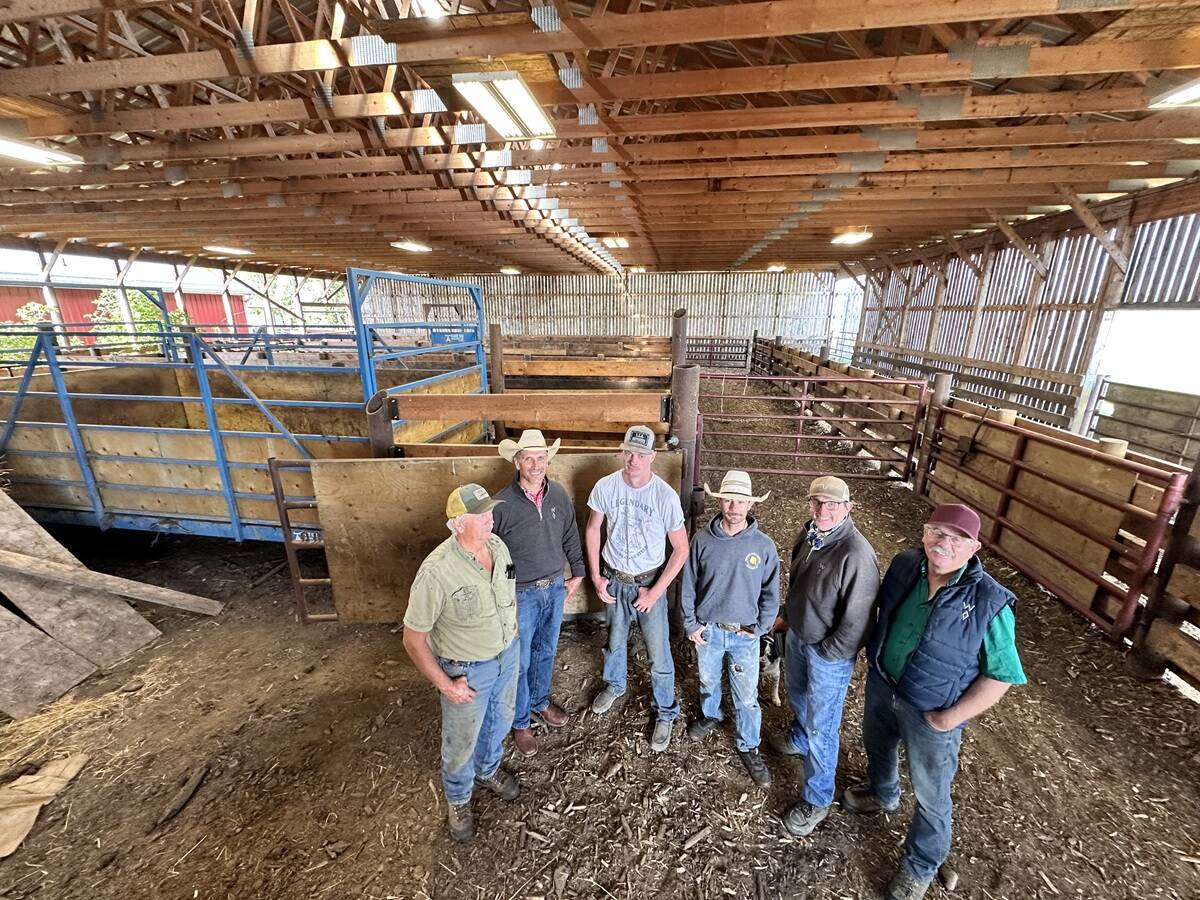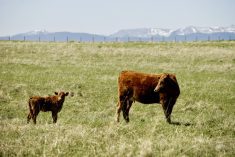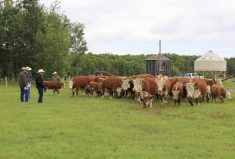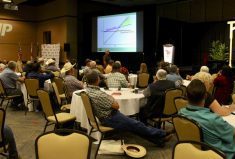Beef producers can be more profitable by controlling costs and, if the circumstances are right, incorporating their operations.
Two virtual presentations by BDO Canada representatives on Beef Day at the Grey-Bruce Farmers’ Week earlier this year provided participants with tips and advice on how to optimize their bottom lines. Maggie Van Camp moderated the presentations and is BDO’s national agricultural practice development leader.
Controlling costs
Read Also

Farm families work together to graze cropland with cattle in the fall
These Alberta farm families have separate operations, but work together to manage their land
She cautioned that making this approach work means that producers need great data and they have to be able to interpret it.
She then explained the difference between cash-based and accrual-based accounting.
“Farmers often say you know it’s a good year if they’ve paid off their operating loans and there’s money in the bank after the calves are sold,” she says. MacDonald adds that while that’s fine, often there’s a stack of bills that still need to be paid and cheques that haven’t been cashed.
Cash-based accounting matches the bank account and gives producers greater flexibility to manage their results in terms of taxes.
“Cash-based is manageable, but not comparable,” she says, which is why she recommends accrual-based accounting, in which revenues are recorded when they’re earned, not when the cheque is cashed, and expenses are recorded when they are incurred, not when they are paid.
- [READ MORE] Crafting a new meat business
Cash-based is easier because farmers don’t have to record payables and receivables, and it’s easy to manipulate which is great for deferring taxes. But accrual accounting measures financial performance, which is better for controlling costs.
“Accrual accounting is typically required by lenders because they are looking for healthy cash flows before extending more debt to producers,” she says, adding that accrued financial reporting statements give all the data needed to answer the hard questions around controlling costs.
These statements contain information on gross margins, contribution margins, operating income and net income.
“Sometimes we see dramatic revenue spikes year-over-year because of herd expansions and higher sales, but if we look at the costs of goods sold, the costs have actually put the farmers further behind,” she says. “It’s like being stuck in the mud, and the faster you spin the tires, the worse things are turning out.”
She says that they use the gross margin number to answer questions like “Does it really pay to buy calves from the West, or is it worth it to finish cattle in the States?”
Ceaser-MacDonald addressed the issues of unexpected forces such as drought, closed borders, closed processing plants and the like by saying that producers still need to have the financial data to be able to change with the times to maintain long-term prosperity.
“What if you did have prosperity but didn’t realize it?” she says. “Without financial statements, how would you know?”
She also talked about labour, and how it might be worth it to have someone else do the haying, freeing up the producers’ time to do other things.
“We’ve all heard about how input costs are going up and up — you can plan for the increase, if you have a budget,” she says. Budgeting revenue in an ever-changing market is hard, she notes, but producers should set some goals for the operation, especially around the things they can control.
“Budgeting can be as simple as taking last year’s financials and identifying where costs can be cut or figuring out how to change so you can increase revenue.”
BDO has benchmarking data that can compare the financials for one operation to others in the industry and to itself over a five-year timeline.
“It gives you practical information about your performance and identifies ways to improve.”
The company’s financial health check looks at several areas, including debt ratios — how much operating income is available to meet debt obligations.
“It focuses on the financial strength of your farm,” she says. “It shows key performance indicators including your contribution margin: You grew corn last year — did you make money on it? You backgrounded your own calves — was it profitable?”
- [READ MORE] An unconventional start to a farming career
Ceaser-MacDonald recognized that farmers may shy away from accrued financial statements because they’re too expensive to have done. She cited a Farm Management Canada study from 2015 that says farmers who have good financial and business management practices were proven to increase their profitability by 525 per cent.
She made the case that not having accrued financial statements could be far more costly than paying for them.
When to incorporate
For example, she noted that the federal government is expected to introduce a program in 2022 that will allow corporations to write off equipment purchases to a maximum of $1.5 million per year. Another program is the Ontario Regional Opportunities Investment Tax Credit, which is aimed at businesses outside cities that build or renovate commercial and industrial buildings. It provides up to 20 per cent of the total input costs to a maximum of $90,000, as long as the building is put to use by January 2023.
She pointed out that by incorporating, tax rates are deferred — by as much as 41 per cent — freeing money to pay down debt or invest in the farm operations. She reiterated the fact that there are taxes on the corporation, plus any funds pulled from the corporation for personal use — whether it’s a salary, dividends or rent — are taxed at the personal rate. If farmers take all the profits out for personal use, there’s little to no tax advantage; it’s only when the money is invested back into the business that it makes sense.
Cruickshank warned that the corporation should be carefully planned and set up with the advice of a lawyer and an accountant. Doing it yourself usually winds up costing much more in fees down the road. The corporation can include the entire farm business with several classes of shares that can be distributed when it comes to succession, or it can be an operation corporation, in which the land stays outside the corporation.
Keeping the land outside the corporation provides greater flexibility and can reduce land transfer taxes.
Capital Gains exemption
“Planning for capital gains exemption and intergenerational rollover rules should be considered from the beginning,” she says, to avoid complications in future years.
In summary, Maggie Van Camp says, “Incorporating an operation and keeping the land outside it may be a good option for some farmers. Growing your profits by managing your costs is totally possible, but you have to have really good data and take the time to analyze that data.”
















